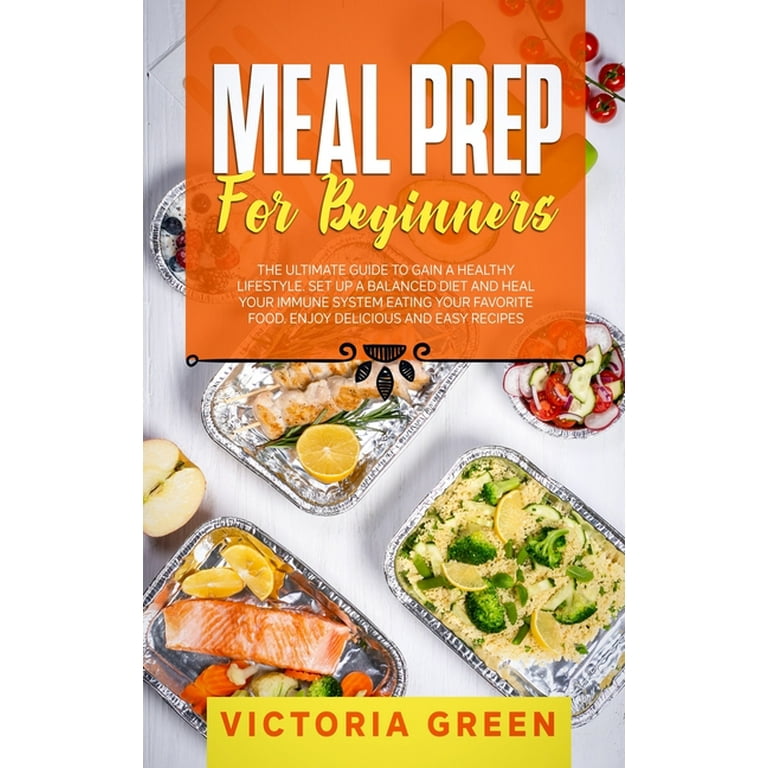A balanced diet is a crucial aspect of maintaining overall health and well-being. It involves the intake of all essential nutrients in appropriate quantities.
A balanced diet supports healthy growth, optimal organ function, and disease prevention. It comprises a combination of fruits, vegetables, whole grains, lean proteins, and healthy fats. By providing the body with the necessary vitamins, minerals, fiber, and antioxidants, a balanced diet helps to boost the immune system, regulate metabolism, improve digestion, and maintain a healthy weight.
It also reduces the risk of chronic conditions such as heart disease, diabetes, and certain cancers. By following a balanced diet, individuals can experience increased energy levels, improved mood, enhanced cognitive function, and improved quality of life.
What Is A Balanced Diet?
A balanced diet refers to a meal plan that consists of all the essential nutrients, vitamins, and minerals needed for the proper functioning of the body. It combines different food groups in appropriate portions to maintain optimum health and well-being.
Definition Of A Balanced Diet
A balanced diet is often defined as a diet that contains a variety of foods in the right proportions, providing the necessary nutrients the body needs for proper functioning. It includes fruits, vegetables, whole grains, lean proteins, and healthy fats.
Components Of A Balanced Diet
The components of a balanced diet include:
- Fruits and vegetables: Rich in vitamins, minerals, and fiber.
- Whole grains provide energy and are a good source of fiber.
- Lean proteins: Essential for muscle repair and growth. Examples include lean meats, fish, poultry, legumes, and tofu.
- Dairy or dairy alternatives: A source of calcium and other nutrients.
- Healthy fats: Found in nuts, seeds, avocados, and olive oil.
- Stay hydrated: Drink an adequate amount of water throughout the day.
A balanced diet helps maintain a healthy weight, prevents chronic diseases, boosts immunity, and promotes overall wellbeing. It is essential to consult a healthcare professional or a registered dietitian for personalized dietary guidance.

Credit: www.walmart.com
The Importance Of A Balanced Diet
A balanced diet is essential for maintaining good health and overall well-being. It provides the body with all the necessary nutrients, vitamins, and minerals for proper functioning. A well-balanced and diverse diet helps achieve optimal health outcomes and prevent diseases.
One of the key benefits of a balanced diet is its impact on overall health. When the body receives a wide range of nutrients, it improves the immune system, promotes better digestion, and enhances energy levels. A balanced diet also plays a crucial role in weight management. It helps maintain a healthy weight by providing the right calories and nutrients, preventing excess weight gain or loss.
Furthermore, a balanced diet offers various nutritional benefits. It ensures the intake of essential macronutrients such as proteins, carbohydrates, fats, and micronutrients like vitamins and minerals. These nutrients support growth, repair tissues, and regulate bodily functions.
A balanced diet is crucial for promoting optimum health, preventing diseases, and managing weight effectively.
Tips For Maintaining A Balanced Diet
Eating a balanced diet is essential for maintaining good health and overall well-being. When planning meals, it is important to keep portion control in mind. Avoid overeating by being mindful of serving sizes and listening to your body’s hunger and fullness cues. Incorporate a variety of food groups into your diet to ensure you get all the necessary nutrients. Each meal aims to include fruits, vegetables, whole grains, lean proteins, and healthy fats. Planning and preparing meals in advance can help you make healthier choices and avoid reaching for unhealthy options when pressed for time. By following these tips, you can ensure you provide your body with the nutrients it needs for optimal health.

Credit: go.orthoindy.com

Credit: www.amazon.com
Frequently Asked Questions Of Balanced Diet
What Are The 7 Things You Need In A Balanced Diet?
A balanced diet includes seven essential components: fruits, vegetables, whole grains, lean proteins, healthy fats, low-fat dairy products, and plenty of water. These provide the necessary nutrients for optimal health and well-being.
What Is A Good Way To Eat Balanced?
To eat balanced, focus on including various nutrient-rich foods in your meals. Include fruits, vegetables, whole grains, lean proteins, and healthy fats. Limit processed foods, added sugars, and unhealthy fats. Drink plenty of water and practice portion control.
What Foods Should Be Avoided In A Balanced Diet?
Avoid processed foods, sugary beverages, fried foods, and excessive intake of red meat. Replace them with fresh fruits, vegetables, whole grains, lean proteins, and low-fat dairy products for a well-balanced diet.
Is It Healthy To Eat a Balanced Diet?
Yes, eating a balanced diet is healthy. It provides your body with essential nutrients for optimal functioning, boosts your immune system, and helps maintain a healthy weight. A balanced diet includes a variety of fruits, vegetables, whole grains, lean proteins, and healthy fats.
Conclusion
A balanced diet plays a crucial role in maintaining good health and well-being. We can fuel our bodies with the necessary nutrients by including various nutrient-dense foods like fruits, vegetables, whole grains, lean proteins, and healthy fats.
Prioritizing portion control and mindful eating habits can also contribute to a balanced diet. So, make small but sustainable changes to your eating habits and embrace the power of a balanced diet for a healthier and happier life.